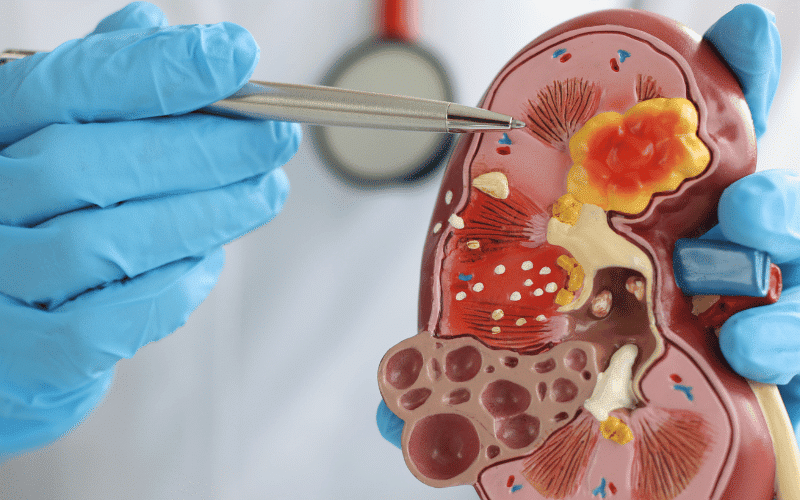Frequently Asked Questions about Nephritis

1. What are the primary causes of nephritis?
Nephritis can be caused by various factors, including autoimmune diseases like lupus, bacterial or viral infections, medications that harm the kidneys, or medical conditions like IgA nephropathy. In some cases, the cause of nephritis may be unknown.
2. Can nephritis be cured?
The treatment and prognosis for nephritis depend on the underlying cause, severity of the condition, and how quickly it’s diagnosed and treated. In some cases, early intervention and appropriate treatment can help reverse kidney damage, while in other instances, treatment may focus on managing symptoms and slowing the progression of the disease.
3. How is nephritis diagnosed?
Nephritis is typically diagnosed through a combination of physical examination, blood tests, urine tests, and imaging studies, such as ultrasounds or CT scans. In some cases, a kidney biopsy may be necessary to determine the cause and severity of the condition.
4. What are the potential complications of nephritis?
If left untreated, nephritis can lead to severe complications, including chronic kidney disease, end-stage renal disease, cardiovascular disease, and increased risk of infections. Early diagnosis and appropriate treatment can help prevent these complications and improve your long-term prognosis.
5. How can I reduce my risk of developing nephritis?
To reduce your risk of developing nephritis, it’s essential to maintain a healthy lifestyle, including a balanced diet, regular exercise, and proper hydration. Additionally, managing underlying medical conditions, such as high blood pressure and diabetes, can help protect your kidney health. If you have a family history of kidney disease or other risk factors, regular check-ups and screenings are vital to detect any early signs of nephritis.
6. Can lifestyle changes help manage nephritis symptoms?
Yes, lifestyle changes can play a crucial role in managing nephritis symptoms and improving your overall well-being. Adopting a healthy diet low in sodium, potassium, and phosphorus can help support kidney function. Regular exercise and stress management techniques can also contribute to better blood pressure control and overall health. It’s essential to work closely with your healthcare provider to develop a personalized plan that addresses your unique needs and medical condition.
Conclusion: Recognizing the Symptoms of Nephritis
Nephritis is a medical condition that can significantly impact your kidneys’ ability to filter waste products and maintain the balance of fluids and electrolytes in your body. Being aware of the 10 common symptoms associated with this ailment, including swelling in the legs, ankles, or feet, foamy or bloody urine, high blood pressure, fatigue and weakness, loss of appetite and nausea, shortness of breath, changes in urination patterns, skin rashes and itching, unexplained weight gain, and persistent lower back pain, can help you recognize the early signs of nephritis and seek appropriate medical attention.
Early diagnosis and intervention are crucial in managing nephritis and preventing long-term kidney damage. If you experience any of the symptoms mentioned above, it’s essential to consult your healthcare provider for a comprehensive evaluation and appropriate treatment plan. By staying proactive about your health and understanding the signs of nephritis, you can take charge of your well-being and ensure that your kidneys remain in optimal condition.